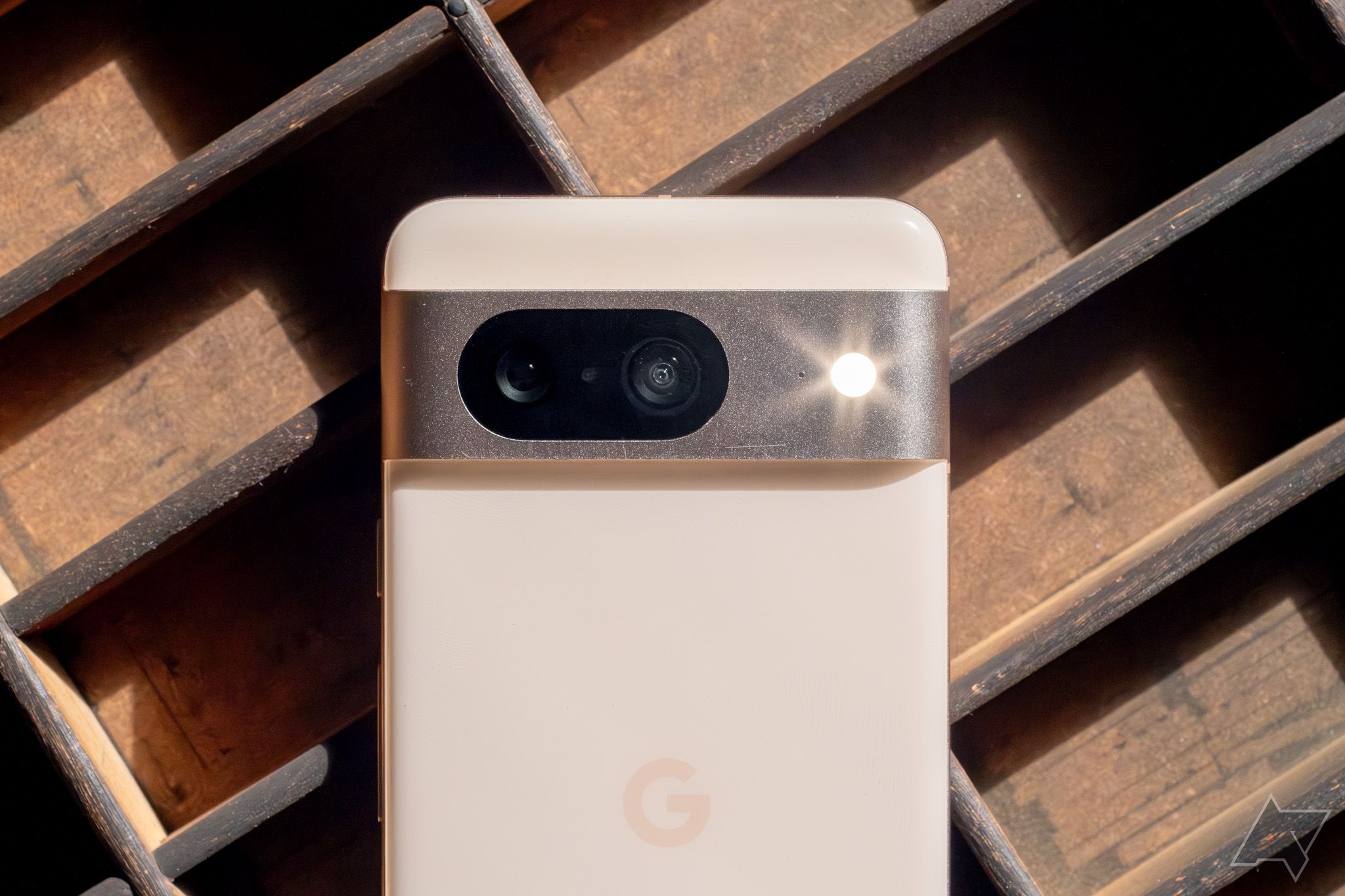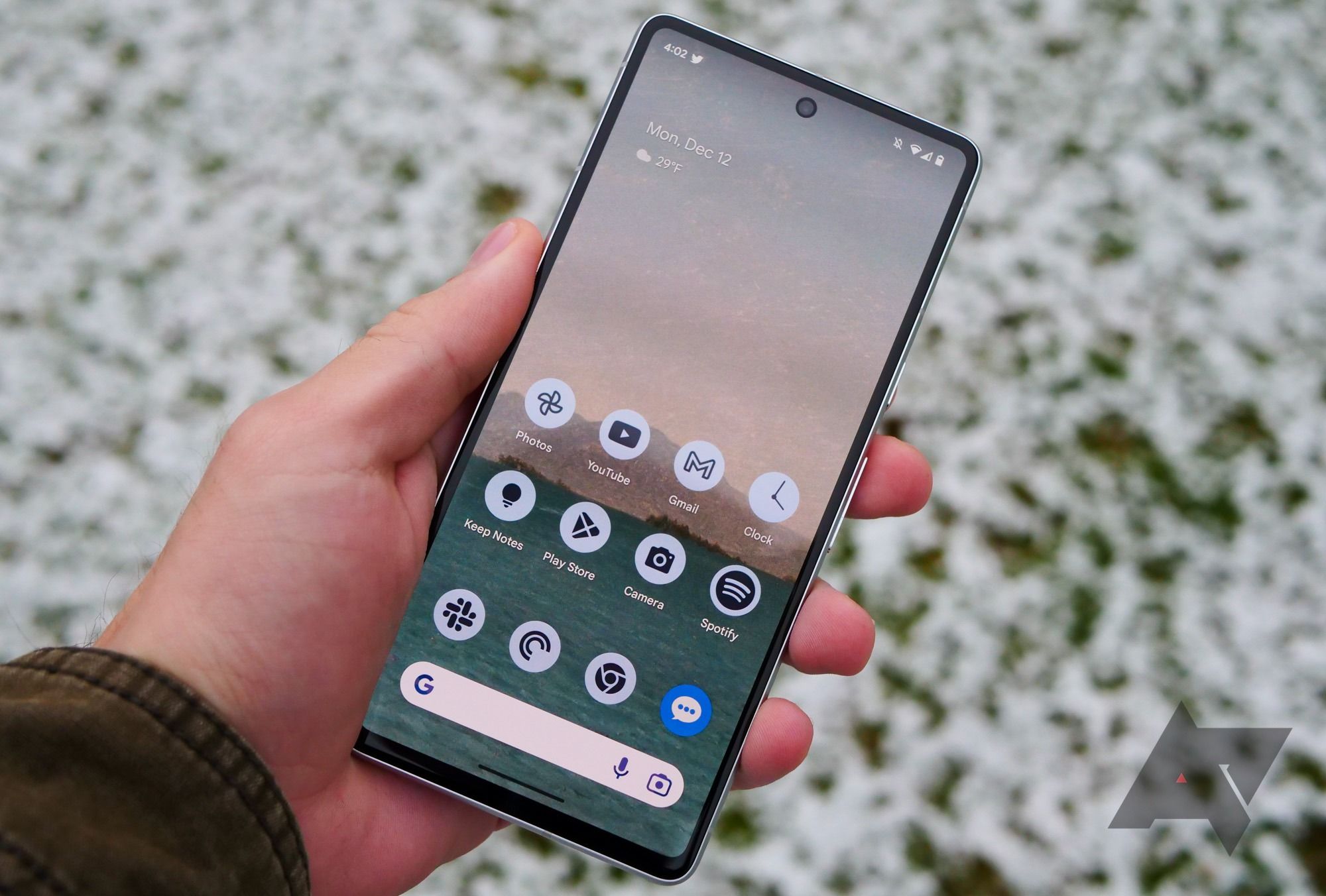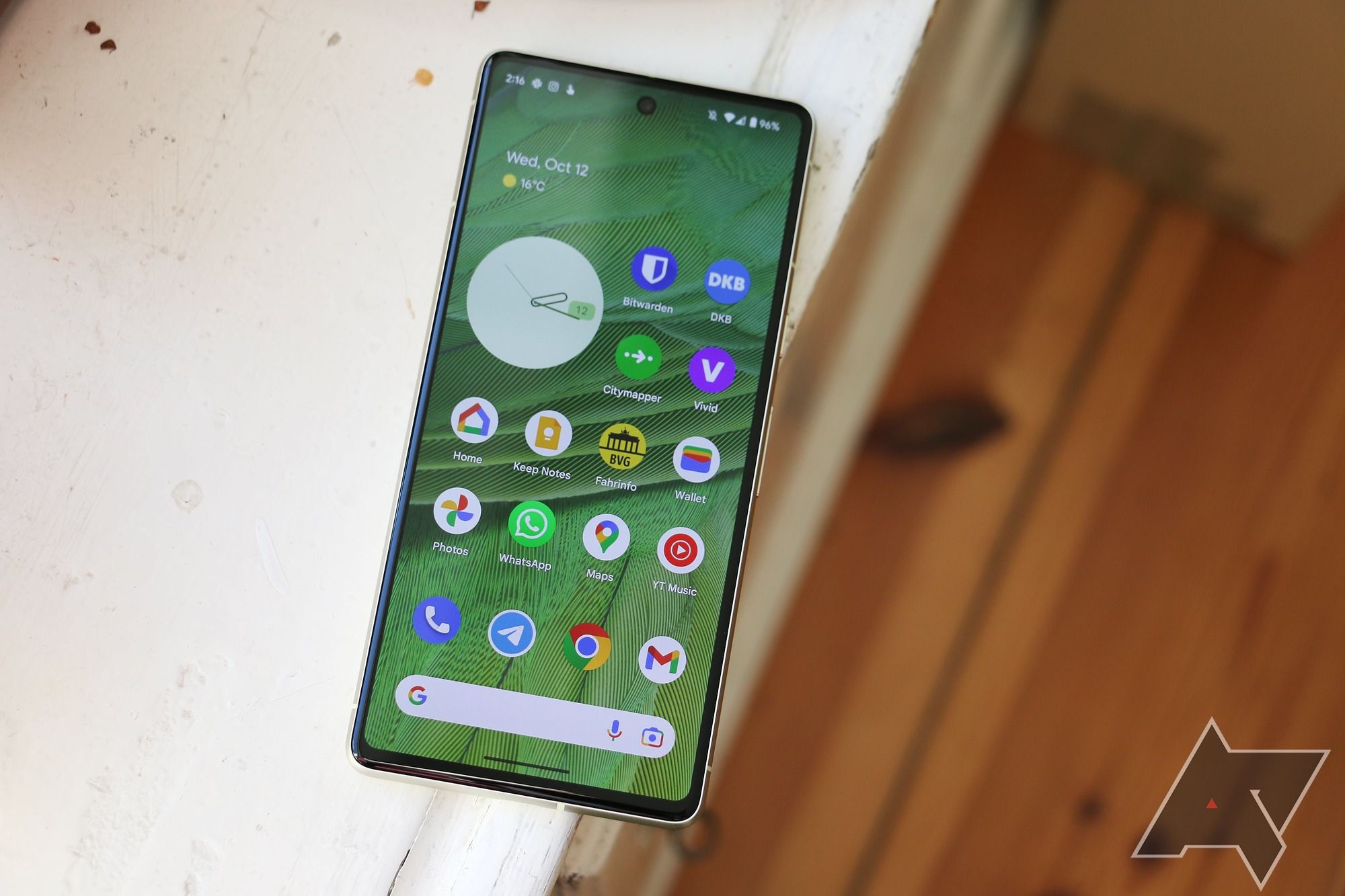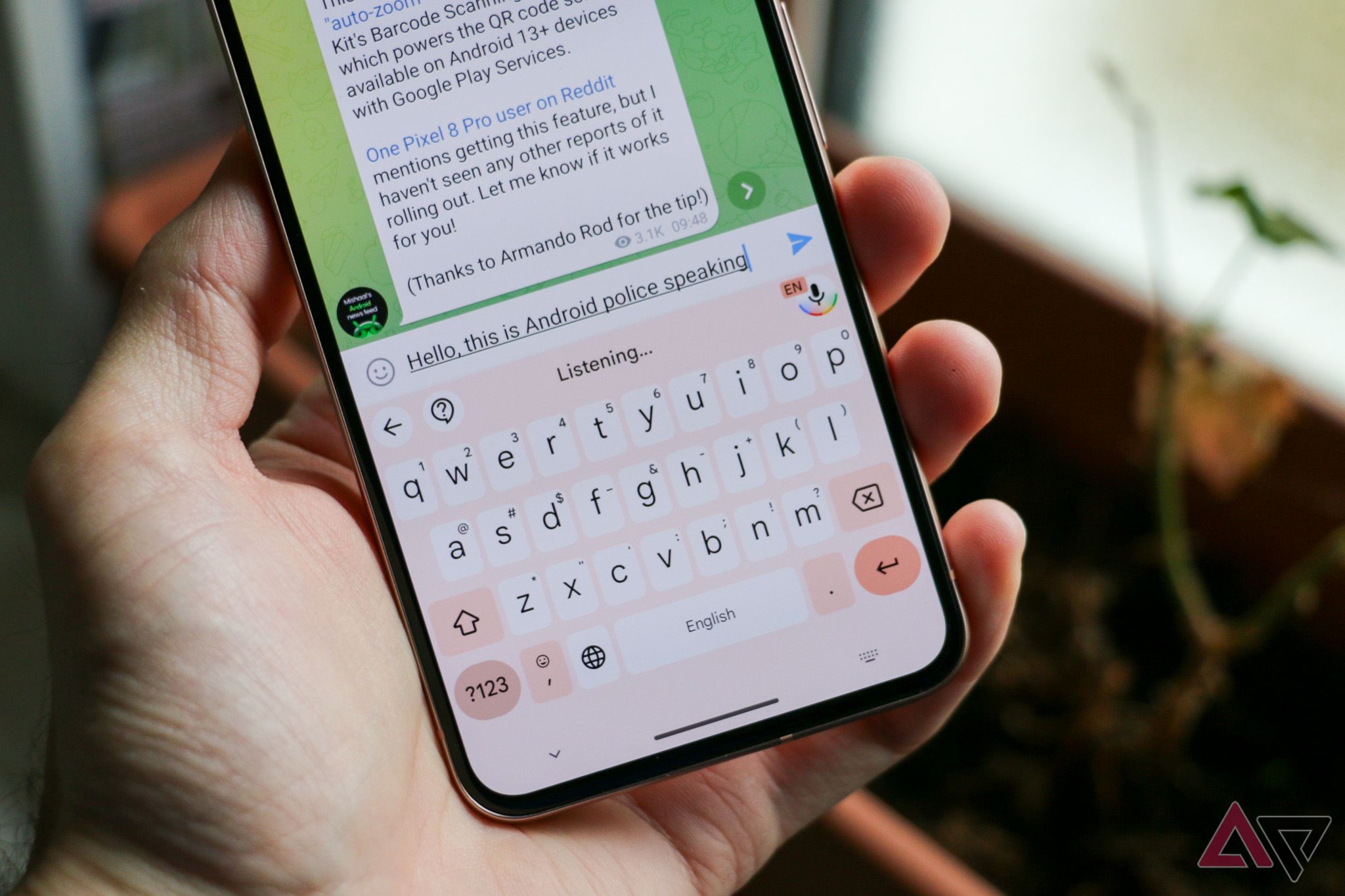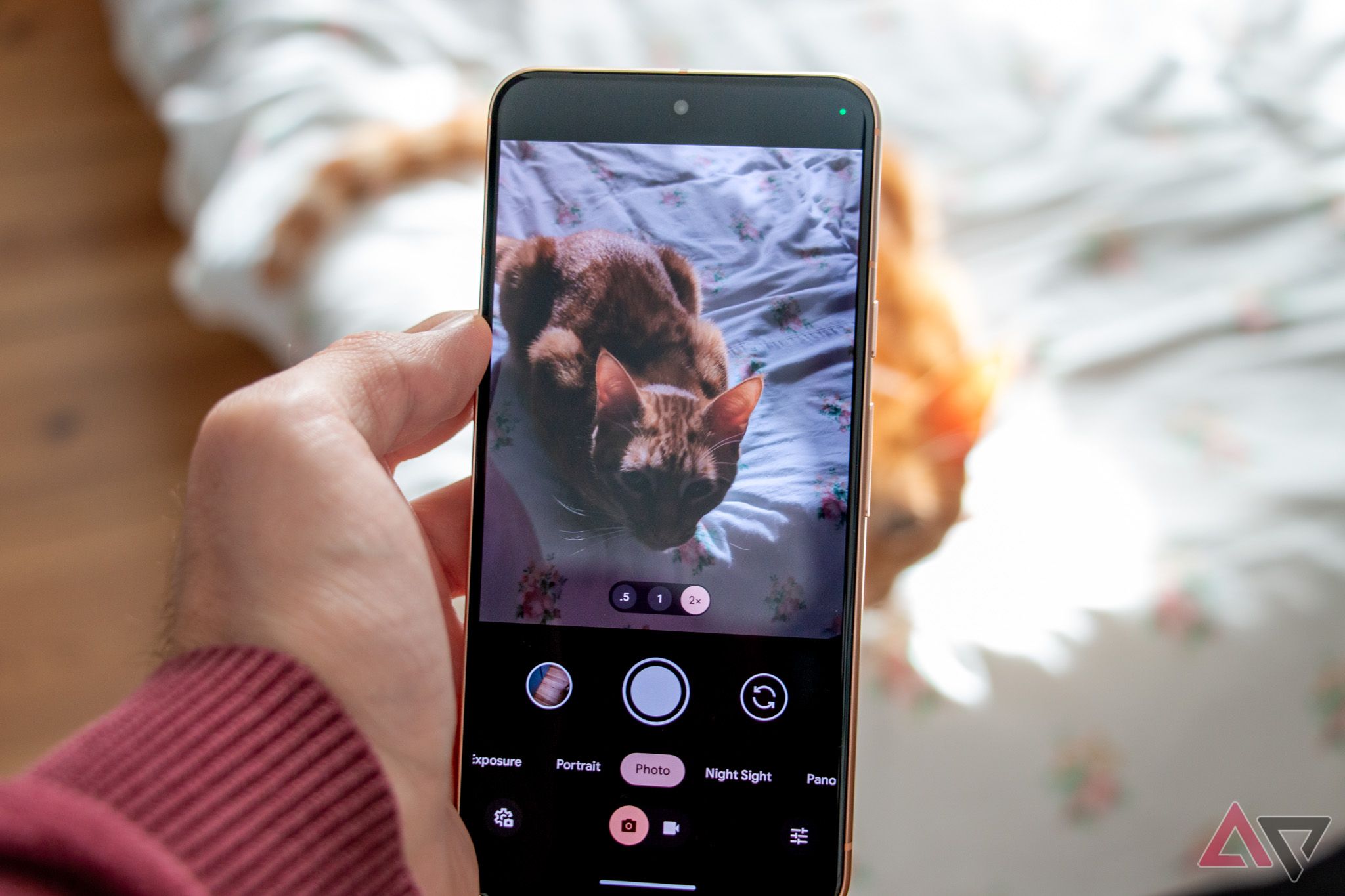-
Google Pixel 8
Refined to perfection$549 $699 Save $150The Google Pixel 8 is one of the best Android phones around. With improved performance, longer battery life, a better display, and seven years of Android updates, the Pixel 8 is tough to beat.
Pros- Bright and beautiful 120Hz display
- Seven years of Android updates
- Great camera system
Cons- Design still isn’t for everyone
- Smaller display
-
Google Pixel 7
Still great$550 $599 Save $49The Pixel 7 is still a great device that leads the pack in camera performance. The Tensor G2 chipset isn’t blazing fast, but can still hold its own by today’s standards, and it still has a few years left of Android updates.
Pros- Great camera system
- Decent overall performance
- All-day battery
Cons- Only two more years of Android updates
- Design isn’t for everyone
The Google Pixel series has offered some of the best Android smartphones on the market. Each year, Google releases a new Pixel device and since the launch of the Pixel 6, has continued to refine the Pixel’s design and provide a modest bump to the specs sheet. This continued refinement means each year you are going to get a better phone than the previous year, but it may not be enough to sway you to an annual upgrade.
With Google’s continued focus on refinement, the Pixel 8 provides some welcome upgrades over the previous generation Pixel 7. The screen is now brighter with a faster refresh rate, the SoC has gotten a boost, the battery is a bit bigger, and it charges faster. While it may not be enough to sway people still using the Pixel 7, if you’re ready for an upgrade, the Pixel 8 is the obvious choice. Like the Pixel 7, Google has plans to keep this phone up-to-date for years to come, so you can keep using it for longer than you probably want to.
Price, specs & availability
The Google Pixel 8 released in October 2023 and is available from retailers like Amazon, Best Buy, Google’s own store, as well as through many carriers. While several of these carriers offer solid discount on the Pixel 8, especially with a trade-in, if you want to buy it in full, the Pixel 8 costs a bit more than in previous years at $699. This is likely to provide a buffer between the Pixel 8 and the less expensive Pixel 7a.
The Pixel 7 currently carries a suggested retail price of $599, although it can routinely be found at a discount, often under $400 for the 128GB model. While you can still pick up a Pixel 7 from many online retailers like Amazon, Best Buy, and the Google Store, it’s not getting the same promotions as the newer model from carriers. It’s also worth noting that as Google sells through its reamining stock, you might not be able to find the color and size you prefer.
-
Google Pixel 8 Google Pixel 7 SoC Google Tensor G3 Google Tensor G2 RAM 8GB LPDDR5X 8GB Storage 128GB, 256GB 128GB, 256GB Battery 4,575mAh 4,355mAh Ports USB-C USB-C Operating System Android 14 Android 13 Front camera 10.5MP, f/2.2 10.8MP, f/2.2 Rear camera 50MP, f/1.7, OIS main; 13MP, f/2.2 ultrawide 50MP, f/1.85 main; 12MP, f/2.2 ultrawide Dimensions 150.5 x 70.8 x 8.9mm 155.6 x 73.2 x 8.7mm Weight 187g 197g Charge speed 27W wired, 18W wireless 20W wired, 20W wireless IP Rating IP68 IP68
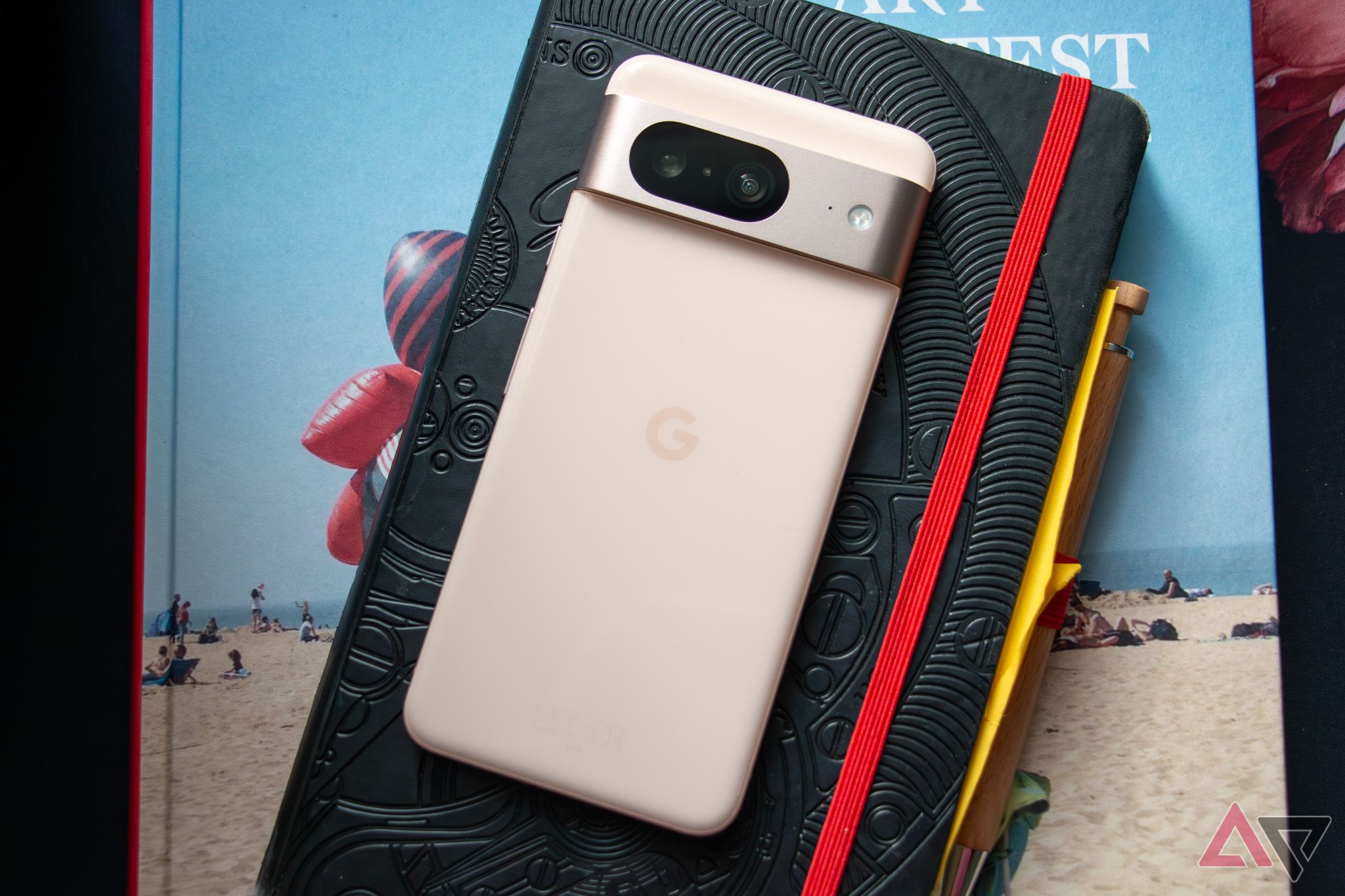
Google Pixel 8 review: The Pixel for the masses
The Pixel 8 doesn’t need every feature the 8 Pro offers, it’s packing more than enough

Google Pixel 7 review: The most refined Pixel yet
The Pixel 7 stays true to Google’s new design language
Design
From a design perspective, Google hasn’t changed much between the Pixel 8 and the Pixel 7. The front of the device is still all screen with thin bezels and a hole-punch camera located at the top-center of the device. The power and volume buttons are along the right edge, and its USB-C port can be found at the bottom. The Pixel 8 retains the Pixel 7’s camera bar with a satin metal frame and polished back glass.
For those of you who are fans of smaller and lighter devices, you will be pleased to know that Google has shrunk the Pixel 8. The Pixel 8 measures 150.5 x 70.8 x 8.9mm and weighs only 187g. The Pixel 7 is larger and heavier; it measures 155.6 x 73.2 x 8.7mm and weighs 197g. The Pixel 8’s screen is also a bit smaller at 6.2 inches, down from 6.3 inches, but overall, the new device has a higher screen to body ratio. That measn smaller bezels around the screen with the bottom seeing the biggest reduction.
The Pixel 8 comes in three color options: Hazel, Rose, and Obsidian. The Pixel 7 is available in Lemongrass, Snow, and Obsidian colorways. Both Pixel devices have stereo speakers, dual speakers, face unlock, and an under-display fingerprint sensor. They are also IP68 dust and water-resistant, giving you adequate protection from the elements.
Display
The Pixel 8’s display is more feature-rich than any previous non-Pro Pixel that has come before it. The Pixel 8 has an always-on ‘Actua’ 6.2-inch 2400 x 1080 OLED display with a refresh rate of up to 120Hz. It also offers up to 1,400 nits in HDR mode and up to 2,000 nits of peak brightness. In our Pixel 8 review, we found the extra brightness and increased refresh rate more than made up for the slight decrease in screen size compared to the Pixel 7.
The Pixel 7’s slightly larger OLED display is still a nice display at 6.3 inches with the same 2400 x 1080 resolution. While the brightness isn’t as high, it’s still bright enough to easily use outdoors on a bright day. The Pixel 7 can hit up to 1,000 nits in HDR mode and tops out at 1,400 nits of peak brightness. The 90Hz refresh rate will be noticeably slower to some people, but for the most part, won’t affect usability much. Both the Pixel 8 and the Pixel 7 are protected by Corning Gorilla Glass Victus.
Software
Since both of these devices are made by Google, you can expect a very similar, if not identical experience on both of them. You are getting Google’s custom Pixel Launcher UI, which is mostly stock Android with a few quality-of-life enhancements. These enhancements are usually centered around machine learning and AI and can improve your overall experience.
These features include Pixel Call Assist for helping make and avoid unwanted calls, Google Assistant, Magic Eraser, and a built-in VPN by Google One. For example, Google has improved speech recognition on the Pixel 8 so you can speak to Google Assistant more naturally. Even so, we still found its multi-language dictation to be a bit lacking in some areas.
On the security front, Pixel 8 has gotten a better face unlock option which can be used for logging into apps rather than just bypassing the lock screen as it was on Pixel 7. With an optical fingerprint sensor still available, the Pixel 8 offers the best of both worlds for biometric security.
The big difference will come down the line. The Google Pixel 7 was guaranteed to get three years of Android updates (until 2025) and five years of security updates (to 2027). Google is blowing that out of the water this year by giving the Pixel 8 seven years of Android updates, security updates, and feature drops – meaning it will be supported until 2030.
Performance
The Pixel 7 launched with Google’s custom Tensor G2 SoC, which was marginally improved over the original Tensor. While the Tensor chipset has lacked top-end computational and graphics performance, it excels at machine learning and image processing. While we haven’t noticed any big improvements in performance, the Tensor G3 in the Pixel 8 does appear to have better thermal management. So less overheating.
The Tensor G3 chipset changes the configuration a bit compared to the Tensor G2. The Tensor G2 came with two Cortex-X1 cores at 2.85GHz, two Cortex-A78 cores at 2.3GHz, and four Cortex-A55 cores at 1.8GHz. The Tensor G3 comes with one Cortex-X3 core at 3GHz, four Cortex-A715 cores at 2.45GHz, and four Cortex-A510 cores at 2.15GHz. While the Tenso G3 comes out ahead of the G2 in benchmarks, it still falls short of Qualcomm’s best chips in other flahgship phones. Still, this phone has plenty of power for just about anything on the Play Store.
The Pixel 8 ships with 8GB of LPDDR5X RAM and either 128GB or 256GB of UFS 3.1 storage. The Pixel 7 is similar here; it comes with 8GB of LPDDR5 RAM and either 128GB or 256GB of UFS3.1 storage. Overall, you can expect the Pixel 8 to be slightly faster than the Pixel 7 and much closer to a device like the Galaxy S23 in performance.
Battery Life
The Pixel 8 comes with a 4,575mAh battery, which easily delivers all-day battery life. In our testing, we found the Pixel 8 delviers significantly longer screen time than the Pixel 7 despite its battery not being much bigger. The Pixel 7 ships with a slightly smaller 4,355mAh battery, though this is also typically enough to make it through an entire day. While still not
The Pixel 8 also gets faster charging with 27W wired charging supported compared to 20W on the Pixel 7. Wireless charging has taken a small step back to 18W from 20W, but for most people, this is a worthwhile trade-off. Even so, you’ll need one of the best wireless chargers to get top charging speeds from either phone.
Camera
Google has offered one of the best camera systems in a smartphone for some time now, and that’s still true with the Pixel 8. The Pixel 8 uses a dual-camera system which consists of a 50MP f/1.68 main display that can zoom 2x optically and up to 8x digitally and has an 82-degree field of view. It also has a 12MP f/2.2 ultrawide lens with a 125.8-degree field of view. The front-facing camera comes in a 10.5MP with an f/2.2 aperture and a 95-degree field of view.
The Pixel 7 also has a dual-lens camera setup, and in fact the hardware specs are remarkably similar. The main lens is a 50MP Quad Bayer lens with an f/1.85 aperture and an 82-degree field of view. The ultrawide is a 12MP f/2.2 lens with a 114-degree field of view. The Pixel 8 and Pixel 7 have a single-zone laser detect autofocus (LDAF).
Both the Pixel 8 and the Pixel 7 can record 4K and 1080P at up to 60 FPS from both the front and rear lenses. They support 10-bit HDR video, Cinematic Blur, Cinematic Pan, astrophotography timelapse, optical image stabilizing, and slo-mo video up to 240 FPS.
The Pixel 7’s cameras are more sensitive to light meaning they work better in a wide range of conditions. We found that the newer phone didn’t need to kick in night mode as soon as the Pixel 7, meaning better motion in low light photos. The Pixel 8’s ultrawide camera is a more sensitive sensor from the Pixel 7 Pro and which also helps it capture better images. Last but not least, the selfie camera has gotten a solid upgrade.
Which is right for you?
If you’re shopping for a new phone today, the Pixel 8 is the clear winner here. It not only surpasses its predecessor in some key areas but matches it everywhere else.
The Pixel 8 has overall faster performance, a better display, slightly better battery life, and years of additional software updates. Seven years of Android and security updates is nothing to sneeze at and will keep the device relevant for close to a decade. The phone has gotten a bit smaller while still improving the display as well. While the camera system doesn’t get a huge upgrade, it is undeniably superior on the newer model. For an extra $100, the benefits far outweigh the additional cost.

Google Pixel 8
Pixel-perfect
With improvements all over the place, the Google Pixel 8 offers a ton of performance, a great camera system, decent battery life, and seven years of Android updates. Google has made the Pixel 8 series a serious contender for best smartphone of the year.
If you already have a Pixel 7, then upgrading is a tougher sell. While the Pixel 8 is improved in some key areas, the Pixel 7 is no slouch and will continue to get software updates for a few more years. It still has one of the best cameras on the market and the Tensor G2 SoC still has plenty of power to keep up for a couple more years at least. That being said, the Pixel 7 has seen some nice deals taking the price under $400 at some retailers. If you’re looking for a new phone on a budget, the last years flagship Pixel is an excellent choice with a couple of more OS updates to come, and years of security updates on deck,
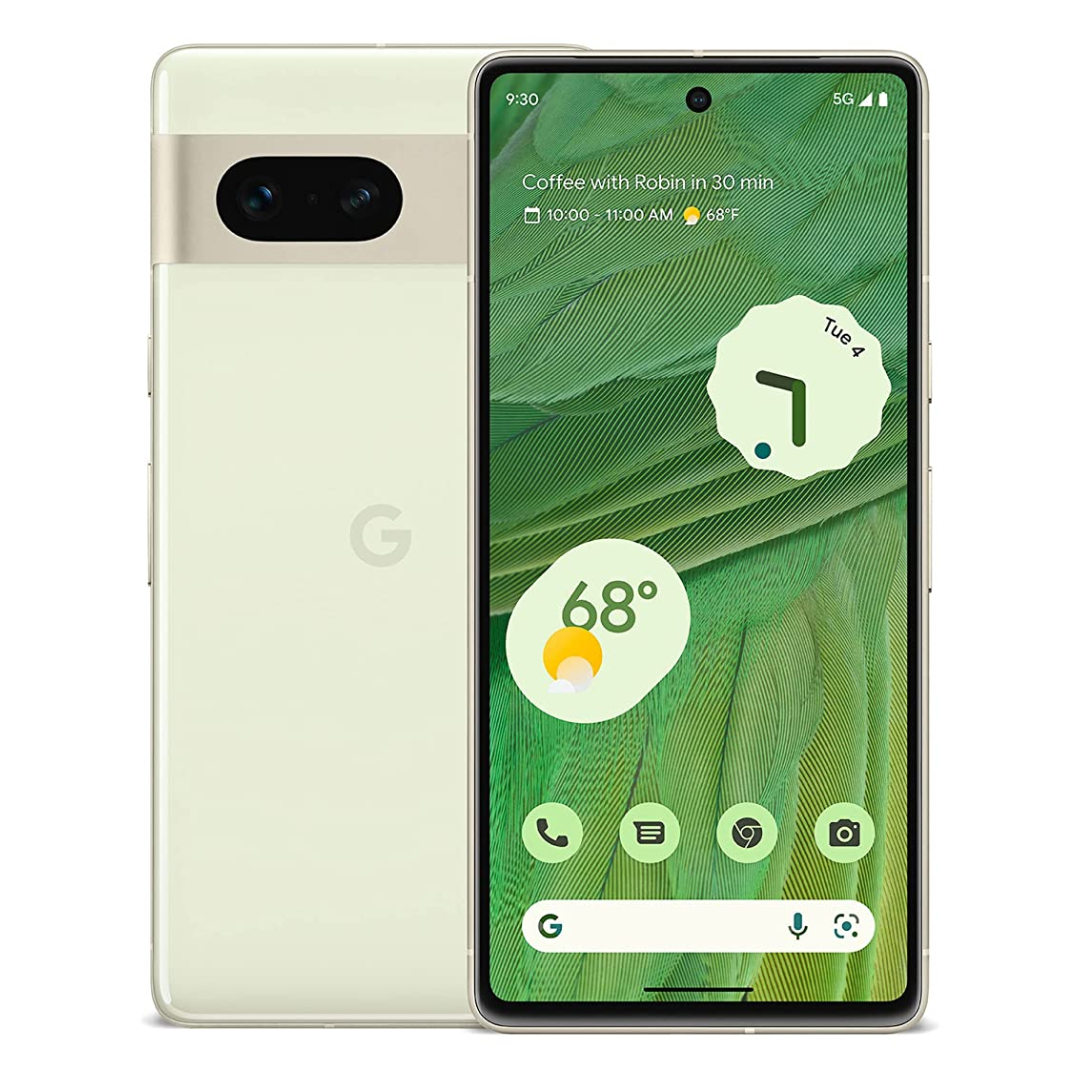
Google Pixel 7
No need to upgrade yet
The Pixel 7 is still a great phone a year after its initial launch. It may not offer the same level of performance or the number of Android updates as the newer Pixel 8 it is still quite capable. Anyone who already has a Pixel 7 knows that it is still a great device.




